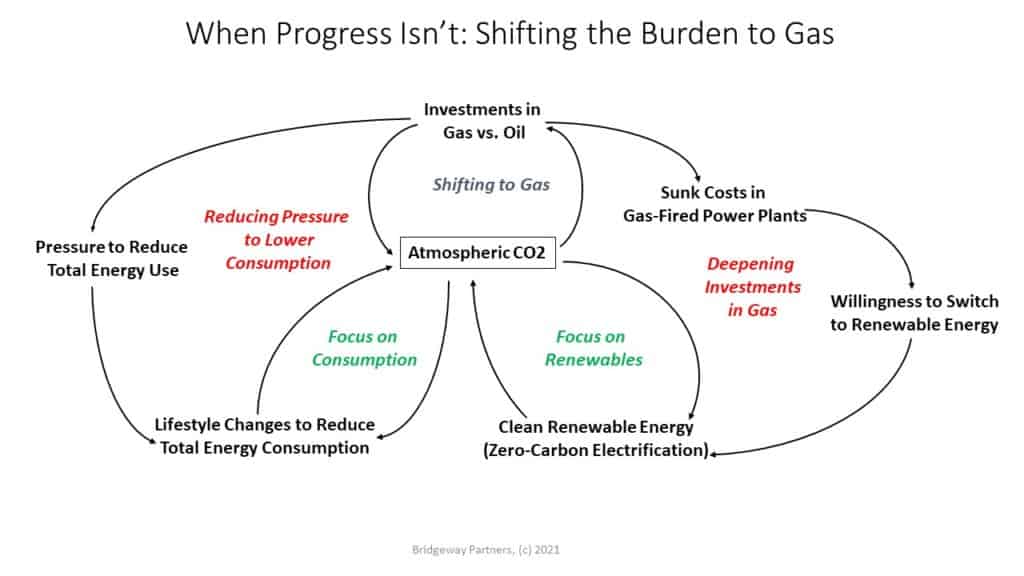Growing concerns about climate change are leading people to take action on many fronts. We want to show meaningful progress, and we want to show it now. Yet despite the growing economic viability of renewable energy sources such as solar and wind, there are legitimate questions about how to ensure power sources that are both continuous and easily distributed – as oil and gas continue to be.
One solution has been to invest more in gas-fired power plants since they are a cleaner form of fossil fuels than oil or coal. However, as Bill Gates points out in his new book How to Avoid a Climate Disaster, the drive to invest in gas-fired plants is a quick fix that can actually deter us from implementing the more fundamental solution of doing whatever it takes to shift to clean renewable energy. The plants can appear to be progress towards reducing greenhouse gases, when ultimately they could make things worse.
While not using the term, Gates is pointing to a classic dynamic called “Shifting the Burden” where a quick fix undermines sustainable improvement in system performance. Shifting the Burden is the tendency to build dependence on a more expedient solution to a problem (in this case the rapidly rising level of greenhouse gases) rather than invest sufficiently in a more fundamental solution that takes longer to implement. When it comes to energy management there are at least two longer term solutions:
- Invest even more aggressively in clean renewable energy by reducing the barriers to discontinuous performance and building out the distribution networks necessary to increase its availability
- Change lifestyles to reduce the overall demand for energy, as we saw when we discovered how dramatically we could reduce carbon emissions by working from home during COVD instead of commuting (or flying)
Gates points out that an unintended consequence of investing in gas-fired power plants is that investors will expect a long-term return on the huge sunk costs these plants create. In order to recover these costs, they will be less eager to invest money in making clean renewable energy a widespread reality. An additional unintended consequence of building up our dependence on gas-fired power plants in the short- and medium-term is that we will assume we can use energy at the same levels we’ve become accustomed to rather than adjust our lifestyles to reduce overall energy usage.
The full dynamic is exhibited in the figure below:

As much as we want to reduce overall carbon emissions in any way possible, some alternatives will show progress that isn’t – progress in the short-term that only makes things worse. As Stephen Covey said years ago, it is better to begin with the end in mind (e.g. powering our lives through clean renewable energy) and work backwards from there.
